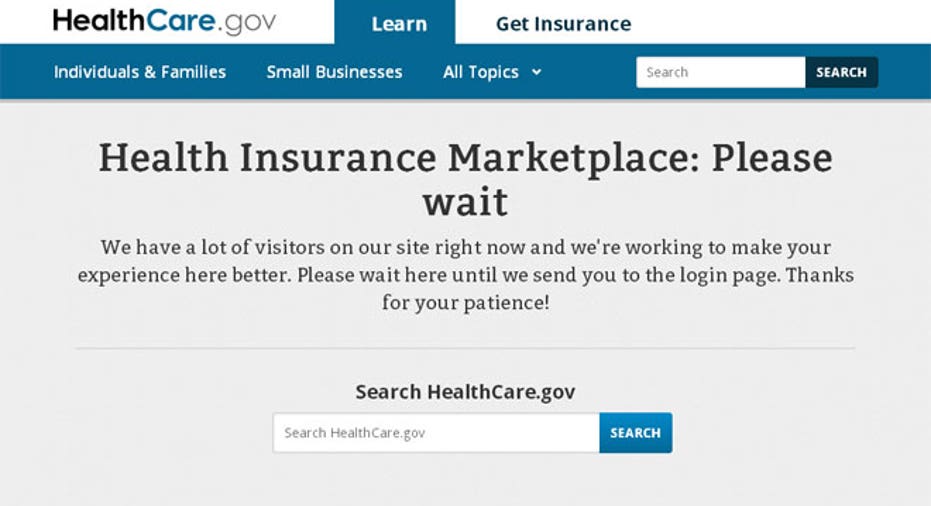How Will Uncle Sam Enforce the Individual Mandate?

As the president’s landmark health-care reform law hits a major milestone Tuesday with the launch of state and federally-run exchanges, the Affordable Care Act’s most controversial mandates will begin to take shape: the individual mandate.
Under the law, every individual in the country must obtain coverage by the end of open enrollment period on March 31, 2014. After that point, the government will implement the mandate, which charges those without insurance a fee of $95 in 2014, or 1% of their annual income, whichever is higher. The IRS will determine and implement the size of the fine via tax filings.
The penalties for failing to have coverage will continue to climb to up to 2.5% of annual income by 2016, a move lawmakers designed to push more people into the health insurance marketplaces, but many experts question the effectiveness of a mandate.
Why the Mandate Matters
The individual mandate is at the heart of what the Obama Administration hopes will make the law function, says Devon Herrick, senior analyst at the National Center for Policy Analysis.
The idea is to get between six and seven million people signed up in the first year of the new law, according to the Department of Health and Human Services. Of that goal, the government is hoping 2.7 million are young and healthy enrollees to help offset costs of older, and presumably less healthy and more expensive, policyholders. But young people are least likely to have coverage or feel that it’s important, Herrick says.
“They are the ones who are supposed to enroll so older and less healthy individuals have affordable premiums,” he says. “And of course, individuals with health problems are most apt to enroll. We have already seen this happen in states that pass insurance regulations like guaranteed issue and community rating. Over time, premiums rose, healthy individuals dropped out, and the costs skyrocketed.”
Those who support the ACA hope that generous exchange subsidies and the individual mandate will help mitigate any problem and make the exchanges attractive. Subsidies are available for those who are making up to 400% of the federal poverty level, which is around $45,000 for an individual and $94,000 for a family of four, according to the Kaiser Family Foundation.
Gaming the System?
Because there are no criminal charges associated with not purchasing health insurance, and offenders only face a $95 fee, Larry Kocot, visiting fellow at the Brookings Institution, says some individuals many not feel obligated to get coverage.
“It’s a decision individuals will have to make—there will be bigger consequences for dishonesty,” Kockot says. “The payment is not subject to criminal penalties, liens or levies. Essentially, the government can issue you a notice of payment or can collect this from your tax return.”
Honesty on tax filings will depend on how much the taxpayer fears the IRS, says Herrick.
“Because there are only civil penalties, it’s not quite the same as lying on your taxes,” he says. “You can’t go to jail for lying about having health coverage.”
An estimated 30 million Americans are currently without insurance and the Department of Health and Human Services has said it estimates collecting penalties from about six million people. The rest will be exempt because they may not be required to file income taxes, have a religious exemption, their state didn’t expand the Medicaid program, or other related reasons, Herrick says.
HHS announced the databases that were meant to cross-reference whether individuals have coverage, are eligible for subsidies, have employer-sponsored plans, and more will not be ready for open enrollment, says Herrick, which leads him to believe many may try to game the system.
“It will be like an honor system at first,” Herrick says. “There isn’t a huge downside for people to game the system the best they can. Let’s say some of their income is in cash, they may ‘qualify’ for a subsidy.”
How Tough Will Uncle Sam Get?
With the law being so hotly debated and causing so much confusion among the general population, Kocot says he would be surprised to see the federal government aggressively implement the individual mandate during its first full year in effect.
“If the government is sending a [payment] notice to six or seven million people—how many will actually have the ability to pay this?” he says. “Will the federal government really try to collect a penalty in a marketplace that is still forming, where many mistakes were made, and not at the fault of the beneficiary?”
It also remains to be seen if the individual mandate is enough to move Americans to purchase coverage for a full year.
“The young invincible still have a premium to pay each month, and if he or she has to make a call on buying food or clothes, or going without health insurance because they will pay the price later, this probably applies. Someone may feel like this is just a penalty and they will have to pay later,” he says. “Others may feel the responsibility to pay the fee.”
Herrick agrees, and says he would be shocked to see the mandate harshly pursued, especially early on.
“There are too many mechanisms not yet in place for the administration to be aggressive,” he says.



















